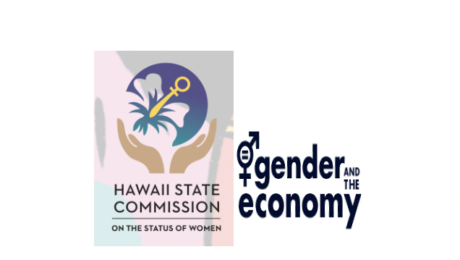“Girly Issues” Are Now the Country’s Issues
Dr. Nancy Folbre, an Advisor and Researcher of the CWE-GAM project and a groundbreaking feminist economist was among the first to sound the alarm about the care crisis. Dr. Folbre’s work on the care sector, once considered “just girly issues” by fellow economists, are now recognized as issues belonging to the U.S.. Previously the recipient of the 1998 MacArthur “genius” grant, Dr. Folbre’s research has journeyed from “fringe idea to more mainstream policy.”
Once cast aside in policy discussions, the care crisis is finally getting the spotlight it deserves after the pandemic forced many schools and child-care centers to close, leaving “ten million mothers of school-age children out of the workforce.” The pandemic is forcing policymakers to finally face the cracks in America’s care infrastructure that Dr. Folbre and other experts have long pointed out— “a system where working parents do not have reliable, affordable child care is one where they cannot reliably build a career.”
To learn more about Dr. Folbre’s work on care, visit her blog Care Talk and read her recent book The Rise and Decline of Patriarchal Systems.
This blog was authored by Lucie Prewitt, a research assistant for the CWE-GAM project.
- Published in Child Care, COVID 19, Economic Recovery, Feminist Economics
Hawai’i and Canada Provide Lessons for Feminist Economic Recovery from COVID-19
The need for an inclusive, gender-equitable recovery from the COVID-19 pandemic is slowly gaining recognition as it lays bare and exacerbates inequities in economic, social, health, and environmental policies and programs.
The Hawai’i State Commission on the Status of Women convened a working group to develop and share principles and practices for implementing a gender-responsive and feminist response to COVID-19, culminating in the publication of Building Bridges, Not Walking on Backs: A Feminist Economic Recovery Plan for COVID-19.
Similarly, the YWCA Canada and the Institute for Gender and the Economy (GATE) at the University of Toronto’s Rotman School of Management published a joint assessment, A Feminist Economic Recovery Plan for Canada: Making the Economy Work for Everyone. The plan highlights critical principles and provides actionable recommendations for the government to develop and implement post-pandemic recovery policies that are equitable and inclusive of all marginalized people.
Together, the Canadian and Hawaiian plans provide a roadmap to recovery through gender-transformative policy-making. Both are built on an intersectional analysis of the impact of the pandemic and call for an approach to economic recovery that examines and confronts the root causes of inequality, including but not limited to patriarchy, ableism, queerphobia, white supremacy, colonialism, classicism, and racism.
A recent brief by Alexandra Solomon, Kate Hawkins, Rosemary Morgan of the Gender and COVID-19 Working Group describes the intersecting, complementary, and mutually reinforcing elements of the two frameworks and echoes the call for feminist economic recovery. It provides a collection of best practices for the core tenets of post-pandemic policy-making which should be echoed and adapted by policy-makers from other settings.
Key Recommendations to Policymakers:
- Pandemic responses should be underpinned by data that is disaggregated by sex and other markets of inequity at the national and subnational level. This data should be made public and used in decision making.
- Women-led organizations, feminist academics and women’s experiences and ideas should be at the center of recovery efforts in government bodies, official consultations and online spaces.
- The provision of universally accessible, free childcare and long-term eldercare should be central to economic recovery plans and attempts to ‘open up’ the economy. Precariously employed immigrant care workers should be provided with an expedited path to permanent resident status.
- Austerity-induced budget cuts should be avoided as they impact most greatly on the poor, women and other marginalized groups. Instead policy-makers should strengthen public welfare assistance (such as unemployment benefit) and labor rights (such as paid sick leave, family leave and a guaranteed living wage).
- Special stimulus funds should be designated for high risk groups, such as those who are not eligible under existing government schemes, are disproportionately experiencing financial hardship and poverty, and already face barriers to accessing their rights to health, safety, independence and education.
- Invest in universal, affordable, and sustainable access to water, sanitation, hygiene and housing, and prioritize closing the gender digital divide.
- Support women in female dominated economic sectors particularly hard hit by the pandemic as well as historically marginalized women workers, such as Indigenous women and sex workers.
- A feminist recovery is aligned with a ‘green’ recovery and the two should be considered in conjunction.
- Revisions of fiscal and monetary policies should be taken as opportunities to address inequality in wages, employment, and quality of life.
- Health systems should be restructured to focus on Universal Health Coverage and to address problems in service access and quality due to sexism, colonialism and white supremacy. Tackling the social determinants of health should be a priority.
- All hate, violence, and oppression against women, gender-diverse people, and Indigenous, Black, and racialized communities must be addressed in the COVID-19 recovery.
READ FULL BREIF:
Solomon, A., Hawkins, K., and Morgan, R. (2020). Hawaii and Canada: Providing lessons for feminist pandemic recovery plans to COVID-19.The Gender and COVID-19 Working Group.
This blog was authored by Shirin Arslan, Program Manager for the Care Work and the Economy Project
- Published in COVID 19, Policy, Policy Briefs & Reports


